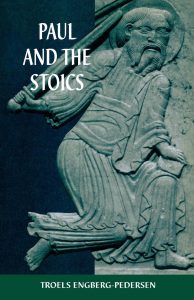Revised: added Self-Opening Doors and P.S.
In the following I am not suggesting that the gospel resurrection appearance scenes were directly borrowed from ancient sources. Rather, that when we read of similar scenes in pagan literature we can recognize them as patently mythical. This is Robert M. Price‘s argument (Deconstructing Jesus, p.39), although Charles H. Talbert argues (What is a Gospel? The Genre of the Canonical Gospels, p. 43) that the late sources for many of the following are known to have been drawing on much earlier (pre-Christian) narratives which, by implication, can be viewed as influencing the gospel authors. Influence does not necessarily mean direct literary borrowing: by definition no-one can evade the narratives of their culture.
On the one hand, his passing from mortal to immortal is attested by the absence of Jesus’ physical remains . . . reinforced by his appearances to friends and disciples in which further instruction is given . . . and by predictions made during his life . . . . On the other hand, Jesus’ ascent through a cloud is witnessed by the Galileans. . . There is no way a Mediterranean man could have missed this as a portrayal of Jesus in the mythology of the immortals (i.e. Asclepius, Hercules, Dionysus, and the Dioscuri, etc.) (What is a Gospel? p.41)
Jonathan Z. Smith‘s modern analyses of ancient myths notwithstanding, Justin Martyr in the second century (First Apology, ch.21) acknowledged that contemporary audiences could not avoid observing similarities between the gospel narratives and pagan tales of the likes of Asclepius and Heracles.
In some circles it is not politically correct to link gospel material with pagan memes. Some scholars (e.g. Ben Witherington) even link such arguments to late-nineteenth and early twentieth century anti-semitism. Ironically, there is another argument that links the current scholarly quest to explore the Jewishness of Jesus with a rebound against post-World War 2 anti-semitism and, in particular, with the West’s love affair with Israel since 1967 (e.g. James G. Crossley, Jesus in an Age of Terror). So with cannon to the right, cannon to the left, I’ll charge into the valley . . .
Leaving Earth Through Self-Opening Doors
Apollonius of Tyana
The guardians of the shrine arrested him in consequence, and threw him in bonds as a wizard and a robber, accusing him of having thrown to the dogs some charmed morsel. But about midnight he loosened his bonds, and after calling those who had bound him, in order that they might witness the spectacle, he ran to the doors of the temple, which opened wide to receive him; and when he had passed within, they closed afresh, as they had been shut, and there was heard a chorus of maidens singing from within the temple, and their song was this. “Hasten thou from earth, hasten thou to Heaven, hasten.” In other words: “Do thou go upwards from earth.”
From Flavius Philostratus, Life of Apollonius, 30
Mark 16:3-6
And they said among themselves, Who shall roll us away the stone from the door of the sepulchre? And when they looked, they saw that the stone was rolled away: for it was very great. And entering into the sepulchre, they saw a young man sitting on the right side, clothed in a long white garment; and they were affrighted. And he saith unto them, Be not affrighted: Ye seek Jesus of Nazareth, which was crucified: he is risen; he is not here
One scholar (name escapes me at the moment) has noted Mark’s use of the tomb as a metaphor for the Temple in Isaiah 22:16, which would enhance the resonance of this ‘door’ detail between the Apollonius and Jesus story in Mark’s gospel.
(After a night’s sleep I recall that the scholar I had in mind was Karel Hanhart who argued the point on Crosstalk2 some years back. He also attributed the exegesis to other Dutch, Swedish and English scholars. — See also Frank McCoy’s comment below for more details.)
This particular echo of massive doors being miraculously opened to make way for the mortal to enter eternal life is pointed out by Robert Price in Deconstructing Jesus (p. 41). Matthew 28:2-4 changes the sequence so that the door is opened supernaturally to show that the body of Jesus has already left — presumably as spirit. If the story of the empty tomb had been known to the author of 1 Corinthians 15 (Paul, let’s say) he may have kept quiet about it because it indicated a flesh and blood body rose from the dead, while he was arguing that the resurrected body is not flesh and blood. (I think Price makes these points, too, elsewhere.)
Price also notes the way the chorus of maidens in the Apollonius story has a counterpart in the young man at the tomb in Mark’s gospel. Both announce what has become of the one for whom the doors were sealed and opened.
The Missing Body – Evidence of Apotheosis
Empedocles the philosopher
For Heraclides, relating the story about the dead woman, how Empedocles got great glory from sending away a dead woman restored to life, says that he celebrated a sacrifice in the field of Pisianax, and that some of his friends were invited, among whom was Pausanias. And then, after the banquet, they lay down, some going a little way off, and some lying under the trees close by in the field, and some wherever they happened to choose. But Empedocles himself remained in the place where he had been sitting. But when day broke, and they arose, he alone was not found. And when he was sought for, and the servants were examined and said that they did not know, one of them said, that at midnight he had heard a loud voice calling Empedocles; and that then he himself rose up and saw a great light from heaven, but nothing else. And as they were all amazed at what had taken place, Pausanias descended and sent some people to look for him; but afterwards he was commanded not to busy himself about the matter, as he was informed that what had happened was deserving of thankfulness, and that they behoved to sacrifice to Empedocles as to one who had become a God.
Heracles (Hercules)
Heracles, having abandoned hope for himself, ascended the pyre and asked each one who came up to him to put torch to the pyre. And when no one had the courage to obey him Philoctetes alone was prevailed upon; and he, having received in return for his compliance the gift of the bow and arrows of Heracles, lighted the pyre. And immediately lightning also fell from the heavens and the pyre was wholly consumed. After this, when the companions of Iolaüs came to gather up the bones of Heracles and found not a single bone anywhere, they assumed that, in accordance with the words of the oracle, he had passed from among men into the company of the gods.
Aristaeus (a son of Apollo and the mortal Cyrenê)
Consequently among the inhabitants of Sicily, as men say, Aristaeus received especial honour as a god, in particular by those who harvested the fruit of the olive-tree. And finally, as the myths relate, he visited Dionysus in Thrace and was initiated into his secret rites, and during his stay in the company of the god he learned from him much useful knowledge. And after dwelling some time in the neighbourhood of Mount Haemus he never was seen again of men, and became the recipient of immortal honours not only among the barbarians of that region but among the Greeks as well.
Aeneas
A severe battle took place not far from Lavinium and many were slain on both sides, but when night came on the armies separated; and when the body of Aeneas was nowhere to be seen, some concluded that it had been translated to the gods and others that it had perished in the river beside which the battle was fought. And the Latins built a hero-shrine to him with this inscription: “To the father and god of this place . . .”
Romulus
Others think that it was neither in the temple of Vulcan nor when the senators alone were present that he disappeared, but that he was holding an assembly of the people outside the city near the so called Goat’s Marsh, when suddenly strange and unaccountable disorders with incredible changes filled the air; the light of the sun failed, and night came down upon them, not with peace and quiet, but with awful peals of thunder and furious blasts driving rain from every quarter, during which the multitude dispersed and fled, but the nobles gathered closely together; and when the storm had ceased, and the sun shone out, and the multitude, now gathered together again in the same place as before, anxiously sought for their king, the nobles would not suffer them to inquire into his disappearance nor busy themselves about it, but exhorted them all to honour and revere Romulus, since he had been caught up into heaven, and was to be a benevolent god for them instead of a good king. The multitude, accordingly, believing this and rejoicing in it, went away to worship him with good hopes of his favour; but there were some, it is said, who tested the matter in a bitter and hostile spirit, and confounded the patricians with the accusation of imposing a silly tale upon the people, and of being themselves the murderers of the king.
Cleomedes
Cleomedes also, who was of gigantic strength and stature, of uncontrolled temper, and like a mad man, is said to have done many deeds of violence, and finally, in a school for boys, he smote with his fist the pillar which supported the roof, broke it in two, and brought down the house. The boys were killed, and Cleomedes, being pursued, took refuge in a great chest, closed the lid down, and held it so fast that many men with their united strength could not pull it up; but when they broke the chest to pieces, the man was not to be found, alive or dead. In their dismay, then, they sent messengers to consult the oracle at Delphi, and the Pythian priestess gave them this answer:—
“Last of the heroes he, Cleomedes, Astypalaean.”
Alcmene
Not every good person was turned into a god. Alcmene was turned to a stone, but to Plutarch it was all a lot of rot for the gullible.
It is said also that the body of Alcmene disappeared, as they were carrying her forth for burial, and a stone was seen lying on the bier instead. In short, many such fables are told by writers who improbably ascribe divinity to the mortal features in human nature, as well as to the divine.
In all four gospels the central evidence in common for the resurrection is the missing body of Jesus — the empty tomb. A missing body of a person renowned for a notable life was a well-known piece of evidence that the hero had become immortal and one of the gods.
Matthew 28:5-6
And the angel answered and said unto the women, Fear not ye: for I know that ye seek Jesus, which was crucified. He is not here: for he is risen, as he said. Come, see the place where the Lord lay. And go quickly, and tell his disciples that he is risen from the dead . . .
John 20:3-9
Peter therefore went forth, and that other disciple, and came to the sepulchre. . . . And he stooping down, and looking in, saw the linen clothes lying; yet went he not in. Then cometh Simon Peter following him, and went into the sepulchre, and seeth the linen clothes lie, And the napkin, that was about his head, not lying with the linen clothes, but wrapped together in a place by itself. Then went in also that other disciple, which came first to the sepulchre, and he saw, and believed. For as yet they knew not the scripture, that he must rise again from the dead.
After Death Appearances
Romulus
At this pass, then, it is said that one of the patricians, a man of noblest birth, and of the most reputable character, a trusted and intimate friend also of Romulus himself, and one of the colonists from Alba, Julius Proculus by name, went into the forum and solemnly swore by the most sacred emblems before all the people that, as he was travelling on the road, he had seen Romulus coming to meet him, fair and stately to the eye as never before, and arrayed in bright and shining armour. He himself, then, affrighted at the sight, had said: “O King, what possessed thee, or what purpose hadst thou, that thou hast left us patricians a prey to unjust and wicked accusations, and the whole city sorrowing without end at the loss of its father?” Whereupon Romulus had replied: “It was the pleasure of the gods, O Proculus, from whom I came, that I should be with mankind only a short time, and that after founding a city destined to be the greatest on earth for empire and glory, I should dwell again in heaven. So farewell, and tell the Romans that if they practise self-restraint, and add to it valour, they will reach the utmost heights of human power. And I will be your propitious deity, Quirinus.” These things seemed to the Romans worthy of belief, from the character of the man who related them, and from the oath which he had taken; moreover, some influence from heaven also, akin to inspiration, laid hold upon their emotions, for no man contradicted Proculus, but all put aside suspicion and calumny and prayed to Quirinus, and honoured him as a god.
Aristeas
For they say that Aristeas died in a fuller’s shop, and that when his friends came to fetch away his body, it had vanished out of sight; and presently certain travellers returning from abroad said they had met Aristeas journeying towards Croton.
Both of the above from Plutarch, Life of Romulus.
Plutarch concludes with some scepticism:
In short, many such fables are told by writers who improbably ascribe divinity to the mortal features in human nature, as well as to the divine.
Matthew 28:9
And as they went to tell his disciples, behold, Jesus met them, saying, All hail. And they came and held him by the feet, and worshipped him.
Luke 24:33-35
And they rose up the same hour, and returned to Jerusalem, and found the eleven gathered together, and them that were with them, Saying, The Lord is risen indeed, and hath appeared to Simon. And they told what things were done in the way, and how he was known of them in breaking of bread.
Appearing Unrecognized to Dejected Followers Returning Home
Asclepius
Compare the following with the Emmaeus Road appearance of Jesus to disciples returning from Jerusalem after thinking their hopes had been dashed.
Sostrata of Pherae was pregnant with worms. When she was absolutely too weak to walk, she was brought into the sanctuary and slept there. When she did not see any clear dream, she went back home again. After that near Cornoi someone seemed to appear to her and her escort, a distinguished-looking man, who inquired about their misfortune; he told them to put down the litter on which they were carrying Sostrata. Then he cut open her stomach and removed a large multitude of worms, two washbasins full. Then he sewed up her stomach, and once he had cured her, Asclepius showed that it was he who had appeared, and ordered her to send votive offerings to Epidaurus
Luke 24:13-31
And, behold, two of them went that same day to a village called Emmaus . . . And they talked together of all these things which had happened. And it came to pass, that, while they communed together and reasoned, Jesus himself drew near, and went with them. But their eyes were holden that they should not know him. And he said unto them, What manner of communications are these that ye have one to another, as ye walk, and are sad? And the one of them, whose name was Cleopas, answering said unto him, Art thou only a stranger in Jerusalem, and hast not known the things which are come to pass therein these days? And he said unto them, What things? And they said unto him, Concerning Jesus of Nazareth, which was a prophet mighty in deed and word before God and all the people: And how the chief priests and our rulers delivered him to be condemned to death, and have crucified him. But we trusted that it had been he which should have redeemed Israel: and beside all this, to day is the third day since these things were done. . . . Then he . . . . expounded unto them in all the scriptures the things concerning himself. . . . . And it came to pass, as he sat at meat with them, he took bread, and blessed it, and brake, and gave to them. And their eyes were opened, and they knew him; and he vanished out of their sight.
Materializing as Flesh and Blood, not a Ghost
Apollonius of Tyana
Damis’ grief had just broken out afresh, and he had made some such exclamation as the following: “Shall we ever behold, O ye gods, our noble and good companion?” when Apollonius, who had heard him -for as a matter of fact he was already present in the chamber of the nymphs- answered: “Ye shall see him, nay, ye have already seen him.”
“Alive?” said Demetrius, “For if you are dead, we have anyhow never ceased to lament you.”
Hereupon Apollonius stretched out his hand and said: “Take hold of me, and if I evade you, then I am indeed a ghost come to you from the realm of Persephone, such as the gods of the underworld reveal to those who are dejected with much mourning. But if I resist your touch, then you shall persuade Damis also that I am both alive and that I have not abandoned my body.“
They were no longer able to disbelieve, but rose up and threw themselves on his neck and kissed him . . .
The disciples of Apollonius were gathered together in a room grieving over what they believed was the death of their teacher, Apollonius. They believed that his trial before emperor Domitian had inevitably resulted in his execution. Apollonius made a miraculous appearance, apparently divinely teleported from the place of trial to where his disciples were
“How then,” said Demetrius, “have you accomplished so long a journey in so small a fraction of the day?”
And Apollonius replied: “Imagine what you will, flying ram or wings of wax excepted, so long as you ascribe it to the intervention of a divine escort.”
and showed them he was not a ghost, but flesh and blood. Like Jesus, he invited them to touch him to prove this.
John 20:19-20
Then the same day at evening, being the first day of the week, when the doors were shut where the disciples were assembled for fear of the Jews, came Jesus and stood in the midst, and saith unto them, Peace be unto you. And when he had so said, he shewed unto them his hands and his side. Then were the disciples glad, when they saw the Lord.
Luke 24:36-40
And as they thus spake, Jesus himself stood in the midst of them, and saith unto them, Peace be unto you. But they were terrified and affrighted, and supposed that they had seen a spirit. And he said unto them, Why are ye troubled? and why do thoughts arise in your hearts? Behold my hands and my feet, that it is I myself: handle me, and see; for a spirit hath not flesh and bones, as ye see me have. And when he had thus spoken, he shewed them his hands and his feet.
A Late Appearance to Convince the Lone Doubter
Doubting Thomas had his counterpart in a young disciple of Apollonius
Apollonius of Tyana
For there came to Tyana a youth who did not shrink from acrimonious discussions, and would not accept truth in argument. Now Apollonius had already passed away from among men, but people still wondered at his passing, and no one ventured to dispute that he was immortal. . . . The young man in question, however, would on no account allow the tenet of immortality of the soul, and said: “I myself, gentlemen, have done nothing now for over nine months but pray to Apollonius that he would reveal to me the truth about the soul; but he is so utterly dead that he will not appear to me in response to my entreaties, nor give me any reason to consider him immortal.“
Such were the young man’s words on that occasion, but on the fifth day following, after discussing the same subject, he fell asleep where he was talking with them, and of the young men who were studying with him, some were reading books, and others were industriously drawing geometrical figures on the ground, when on a sudden, like one possessed, he leapt up still in a half sleep, streaming with perspiration, and cried out: “I believe thee.”
And, when those who were present asked him what was the matter; “Do you not see,” said he, “Apollonius the sage, how that he is present with us and is listening to our discussion, and is reciting wondrous verses about the soul?”
“But where is he?” the others asked, “For we cannot see him anywhere, although we would rather do so than possess all the blessings of mankind.”
And the youth replied: “It would seem that he is come to converse with myself alone concerning the tenets which I would not believe.
It looks quite mythical when told of Apollonius. How could ancients have seen the tale of Jesus’ appearance to Thomas any differently?
John 20:24-28
But Thomas, one of the twelve, called Didymus, was not with them when Jesus came. The other disciples therefore said unto him, We have seen the Lord. But he said unto them, Except I shall see in his hands the print of the nails, and put my finger into the print of the nails, and thrust my hand into his side, I will not believe. And after eight days again his disciples were within, and Thomas with them: then came Jesus, the doors being shut, and stood in the midst, and said, Peace be unto you. Then saith he to Thomas, reach hither thy finger, and behold my hands; and reach hither thy hand, and thrust it into my side: and be not faithless, but believing. And Thomas answered and said unto him, My Lord and my God.
Witnesses to Heavenly Ascent
Alexander the Great
Alexander had prayed to Zeus (Alexander Romance, 3:30):
And if it be thy will, receive me too in heaven, as the third mortal.
The other two mortals who had been taken into heaven were Heracles and Dionysus, whose steps Alexander had been following in his conquests into India. These two (angelic divinities) made their appearance at his death in the form of a star and an eagle:
And when Alexander had said this and much more, a mist formed in the air, and a great star appeared, shooting from heaven to the sea, and together with it an eagle, and the statue in Babylon that they said was of Zeus stirred. The star returned back up to heaven, and the eagle followed it too. And when the star was lost from view in the heavens, immediately Alexander sank into eternal sleep.
From Pseudo-Callisthenes, The Alexander Romance
Augustus Caesar
a certain Numerius Atticus, a senator and ex-praetor, . . . swore that he had seen Augustus ascending to heaven after the manner of which tradition tells concerning Proculus and Romulus.
From Dio Cassius, Roman History
There was even an ex-praetor who took oath that he had seen the form of the Emperor, after he had been reduced to ashes, on its way to heaven.
Luke 24:4
two men stood by them in shining garments
Gospel of Peter, 35-40
But in the night in which the Lord’s day dawned, when the soldiers were safeguarding it two by two in every watch, there was a loud voice in heaven; and they saw that the heavens were opened and that two males who had much radiance had come down from there and come near the sepulcher. . . . and both the young men entered. . . . again they see three males who have come out from the sepulcher, with the two supporting the other one . . . but that of the one being led out by a hand by them going beyond the heavens.
As for the loud voice, compare the moment the philosopher Empedocles was taken from this earth in the previous section.
Luke 20:50-51
And he led them out as far as to Bethany, and he lifted up his hands, and blessed them. And it came to pass, while he blessed them, he was parted from them, and carried up into heaven.
Acts 1:9-10
And when he had spoken these things, while they beheld, he was taken up; and a cloud received him out of their sight. And while they looked stedfastly toward heaven as he went up, behold, two men stood by them in white apparel
Words Exchanged from Jewish Myth
Words to Mary
In Tobit 12:20, after the angel Raphael revealed his identity (after he had been thought a fellow mortal) he said:
for I go up to him that sent me;
Compare John 20:17 and Jesus’ words to Mary:
Jesus saith unto her, Touch me not; for I am not yet ascended to my Father:
Words of Thomas
When Tobit rejoiced in experiencing the presence of Raphael, he said (13:4):
for he is our Lord, and he is the God our Father for ever
Compare John 20:28 when Thomas witnessed the resurrected Jesus:
And Thomas answered and said unto him, My Lord and my God
Indications and Absurdities
To quote from an old article of Charles H. Talbert (JBL, 1975):
So . . . there are indications that some early Christians did think about Christ in terms of the mythology of the immortals. (p.433)
More bluntly, Robert M. Price (Jesus Is Dead, p. 168) writes:
The idea that these stories do not smack of mythology is just palpably absurd. Rather than functioning as an argument on behalf of faith, the claim has by now itself become an article of faith, so drastically does it contradict all manner of evidence.
Is there a worse example of the fallacy of special pleading, the double standard, than to dismiss all these mythical stories from other ancient religions and to claim that in the sole case of the gospels they are all suddenly true? Laughable in the one case, convincing in the other?
P.S.
There are more links between the gospel resurrection stories and various other myths. The famous example of Pythagoras knowing the exact number of fish being hauled in (Iamblichus’s Life of Pythagoras) and the Pythagorean number of 153 being the number of fish caught at Jesus’ command is one.



















